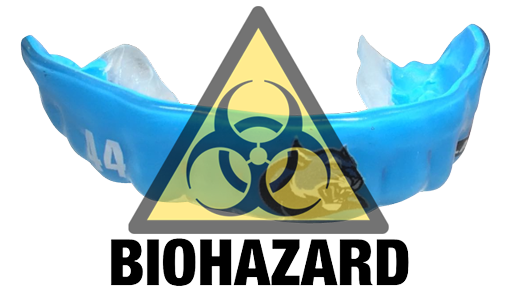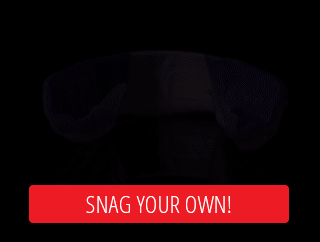Protect Your Protection: How To Properly Clean Your Mouthguard

It shouldn’t come as a surprise, but your mouthguard gets fairly dirty. After all, it does mostly reside in your mouth — and we know that isn’t the cleanest environment.
Your mouthguard is a great place for any food or bacteria stuck in your teeth to end up. And that may be detrimental to your mouthguard and your health.
Like most pieces of equipment, the protection, comfort and effectiveness of your mouthguard is compromised when your mouthguard gets dirty. So how do you properly clean and maintain your mouthguard so that you don’t get sick?
Here are some helpful tips and tricks:
Rinse before and after use
It’s important to rinse off your mouthguard with water or wipe with a mild antibacterial agent and then rinse before and after each use. A quick rinse helps to remove any bacteria that may be lingering.
Clean your mouthguard thoroughly…
A denture cleaner is recommended for keeping your mouthguard clean. Effervescent cleaner works the best by far!
…And properly
Do not clean your mouthguard with toothpaste, a toothbrush or mouthwash; these all cause damage.
Toothpaste and mouthwash are able to breakdown the material of the mouthguard you count on for protection, while toothbrushes scratch and tear the material.
Keep it in the case
Don’t just throw your mouthguard into your dirty gym bag or the bottom of your locker. Make sure to store it in a safe plastic case to avoid both damage and dirt.
The National Athletic Trainers’ Association (NATA) suggests that athletes store their mouthguards in a clean, rigid and ventilated plastic container, and they should not be exposed to prolonged direct sunlight or sources of heat.
Clean the case
Of course, the case you keep your mouthguard in must be kept clean too.
Wipe out the case regularly with an antibacterial wipe or wash it with soap and water. Be sure to rinse thoroughly so the cleaning agent does not get on the mouthguard.
Don’t chew
Chewing breaks down the material of your mouthguard, creating rips and tears. These tough to clean areas allow bacteria to get into the mouthguard.
You should also examine your mouthguard each day for fit and any damage.
Your mouthguard spends a lot of time in your mouth, so it is highly important that you keep it clean. A dirty mouthguard has the ability to make you sick, as well as inhibit your performance and protection on the field, pitch, court or ice. Make sure you follow our helpful tips and tricks to keep your mouthguard clean.
Why Is A Clean Mouthguard Important?








Hi,
I did something a little silly. My mouthguard fell on the floor and I didn’t know how to sterilise it. So I wiped it thoroughly with a dettol anti-bacterial wipe and put it in the case on the radiator to dry the guard. I then realised this was silly and rinsed it thoroughly in water. Thing is, the mouthguard still tastes slightly of the dettol wipe. I also have a sensitive system and react to things my body doesn’t recognise. Every time I put the mouthguard in I’m now reacting to it, in spite of having cleaned it thoroughly numerous times after using the dettol wipe. How is this possible and is there any way to remove whatever is lingering and causing this problem? Feeling very stupid now!!
We would have to recommend using an effervescent denture cleaner and allowing the guard to soak to remove the taste. Unless there are cracks, rips, tears or damage to your guard through use, this will be the best way to clean it. If this doesn’t work, we would recommend a reorder. Do not forget to use your stone model and you receive the reorder discounted pricing.
Question: If we use a denture cleaner, will it remove the custom branding on my Gladiator mouthguard (my custom name, fangs, and gladiator branding)?
Hi Brian,
No, the logos are all sealed within the layers of the guard itself. As long as no holes or tears have been made, the logos will remain intact.